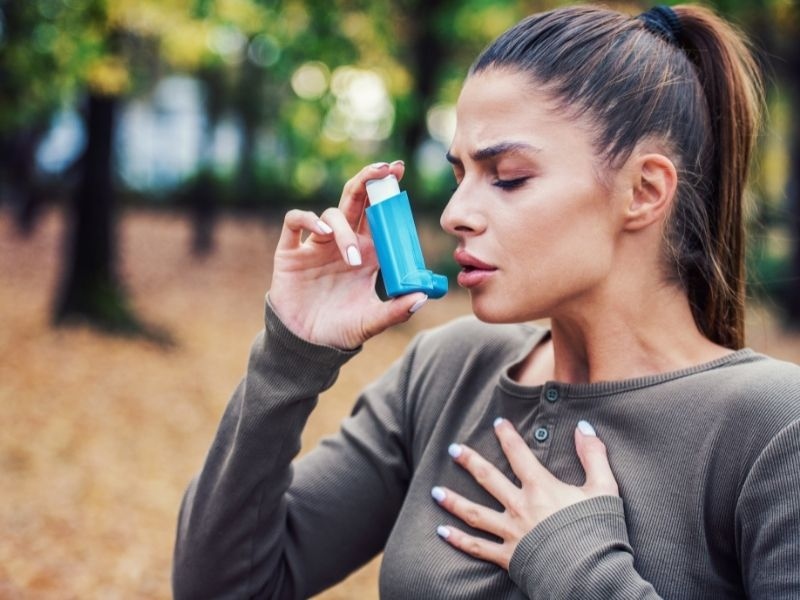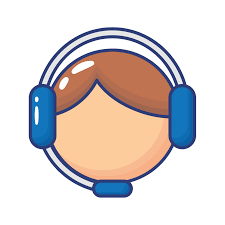How Do You Know If You're Having an Asthma Attack?
People who have asthma have asthma attacks when the muscles around their airways get tight
. This causes their asthma symptoms to get worse very quickly. This is called a bronchospasm. At the same time, the walls of the airways become swollen or inflamed, and thicker mucus is produced than normal. Symptoms of an asthma attack include trouble breathing, wheezing, coughing, shortness of breath, and a hard time doing normal things. All of these factors work together to cause asthma attacks. In addition to the symptoms of an asthma attack, there may also be other things that happen to you.
Severe wheezing when you breathe in and out, both ways
Having a cough that won't stop
In very quick breaths
Pressure or tightness in the chest
Retractions are when the muscles in your neck and chest tighten.
Talking is difficult.
Feelings of fear or anxiety
Pale and sweaty face
In this case, you could have blue lips or fingernails.
Worsening symptoms even though you are taking your medications.
If you have any of these symptoms, you should call 911 to get help right away.
Some people with asthma may go for a long time without having an asthma attack or other symptoms, only to have their symptoms get worse when they are exposed to asthma triggers like exercise or cold air.
Asthma attacks that are mild are more common. Most of the time, the airways open up in a few minutes to a few hours after treatment. Severe asthma attacks are rare, but they last longer and need to be treated right away. In order to keep your asthma under control, you need to know and treat even the smallest signs of a flare-up as soon as possible.
What happens if you don't treat an asthma attack?
When you don't get asthma medicine and asthma treatment right away, you might have trouble breathing and your wheezing might get louder. During an asthma attack, if you use a peak flow meter, your reading is likely to be lower than your own best.
You may not be able to use the peak flow meter at all if you have an asthma attack. Gradually, your lungs may become so tight during an asthma attack that there isn't enough air movement to make you wheeze. Silent chest: This is sometimes called the "silent chest." It's a bad sign. You need to go to the hospital right away because you're having a very bad asthma attack. Call 911 to get help. Unfortunately, some people think that if they don't wheeze during an asthma attack, they're getting better and don't get help right away.
If you don't get enough help after having an asthma attack, you might not be able to speak and your lips might turn blue. As your blood gets less and less oxygen, your body's color changes. This is called "cyanosis." When you don't get aggressive treatment right away in an emergency room or intensive care unit, you may lose consciousness and die.
There are many ways to tell if you're having an asthma attack before it gets worse.
In the beginning, there are changes that happen before or right at the start of an asthma attack. These changes start before the well-known symptoms of asthma. They are the first signs that your asthma is getting worse.
Most of the time, these early symptoms of an asthma attack aren't bad enough to keep you from going about your normal daily tasks. But if you pay attention to these signs, you can stop an asthma attack or keep one from getting worse.
Early signs of an asthma attack could be:
Coughing all the time, especially at night.
Peak flow meter readings have gone down.
losing your breath quickly or having a shortness of breath
When you work out, you may feel very tired or weak.
Hearing or coughing during or after a workout (exercise-induced asthma)
Feeling worn out, angry, grouchy, or moody?
Peak flow meters show that lung function is getting worse or getting better.
People who have a cold or allergies show up with these things (sneezing, runny nose, cough, nasal congestion, sore throat, and headache).
Asthma makes it hard to sleep at night.
The severity of an asthma attack can quickly change, so it's important to treat these symptoms as soon as you notice them.
Is there anything I can do if I have an asthma attack?
Follow the "red zone" or emergency instructions if you or a loved one has an asthma attack and the symptoms don't get better quickly after following the asthma action plan. Contact your doctor or 911 right away, or go to the emergency room right away. You need to get medical help right away.










 And then Add to Home Screen.
And then Add to Home Screen.